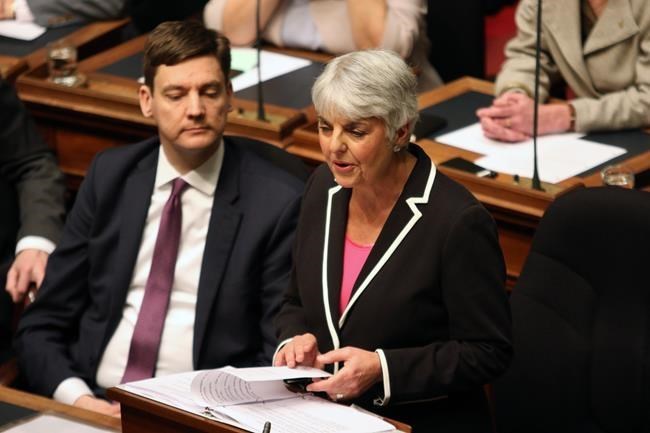 In 1962, a Victoria man recruited a posse of friends and slapped up a pre-fab cabin in Nanoose Bay.
In 1962, a Victoria man recruited a posse of friends and slapped up a pre-fab cabin in Nanoose Bay.
He had bought a waterfront lot there two years before for $4,000. The cabin cost $3,500.
Fast-forward 56 years and welcome to 21st-century real-estate prices and an NDP government determined to do something about them.
The B.C. Assessment Authority says the cabin is worth $88,300. The land it sits on is worth $780,000, for a total 2018 value of $868,300.
The property stayed in the family all that time, and the son now owns it. He paid $3,800 in taxes on it last year. The NDP’s speculation tax would amount to an additional $17,360.
The government from Premier John Horgan on down went out of its way to reassure taxpaying B.C. citizens that the new tax wouldn’t apply to them, but that is very much in doubt.
Nanoose Bay is in one of the five regions where the tax applies, and the property sits vacant when the family isn’t using it, so it qualifies for the speculation tax on those scores.
The big question is whether the owner escapes it by virtue of being a B.C. taxpayer. (Disclosure: He’s an acquaintance of mine.)
Stories like his are filling up the legislature agenda these days as the Opposition B.C. Liberals pitch similar tales of woe to a government that was determined to do something dramatic about housing prices, and now has to face the consequences.
One of the points emerging from all these anecdotes is the perverse contrast between the two major tax moves Finance Minister Carole James made. The other one that got a lot of attention was the employer health tax, a payroll tax on all but the smallest businesses in B.C. that partly replaces Medical Services Plan premiums.
The main reason for abolishing MSP — half this year and the rest next year — was because it was a flat rate charged to everyone regardless of income. Lower-income earners were mostly exempt, but the wealthy and the middle-income people paid the same amount, which is considered a regressive approach that is unfair.
That drawback was universally acknowledged during the several years of unrest over the MSP that led to its planned demise.
But the current design of the speculation tax is regressive to the core, and the values are a lot higher. The more money you earn, the more of the speculation tax you can avoid.
If speculators are the villains of the piece, and NDP rhetoric makes it clear that’s how they’re viewed, then the wealthiest speculators should face the most tax punishment. Instead, it’s just the opposite.
It’s laid out in a Finance Ministry tax bulletin that flies in the face of what the government ministers were suggesting when they introduced the budget last month. They said the speculation tax would target foreign and domestic speculators who own residential property but don’t pay taxes here, including those who leave their units sitting vacant.
“Don’t pay taxes” were reassuring words to most B.C. citizens owning second homes, because they assumed they’d be exempt because they’re taxpayers. The budget documents discussed exemptions specifically and said the province would introduce a non-refundable income-tax credit that would allow those who pay income tax in B.C. to offset the property tax.
But crucially, a tax bulletin brought to light by Postmedia colleague Vaughn Palmer said the tax credit “will help offset” the tax for British Columbians. Not eliminate it completely.
The Nanoose cabin owner calculates that he’d have to earn $180,000 a year to have his income-tax credit wipe out the entire $17,360 in new taxes coming his way. He’s retired and makes nowhere near that. His tax credit will be far less than the $17,360 break-even point, so he’ll pay thousands in new property taxes.
The government housing plan says: “This bold new tax will help return the real-estate market to one that services local residents, rather than speculators.”
We’ll see how bold they are after months of objections from alarmed and confused taxpayers, when it comes time to put their intentions into law.



